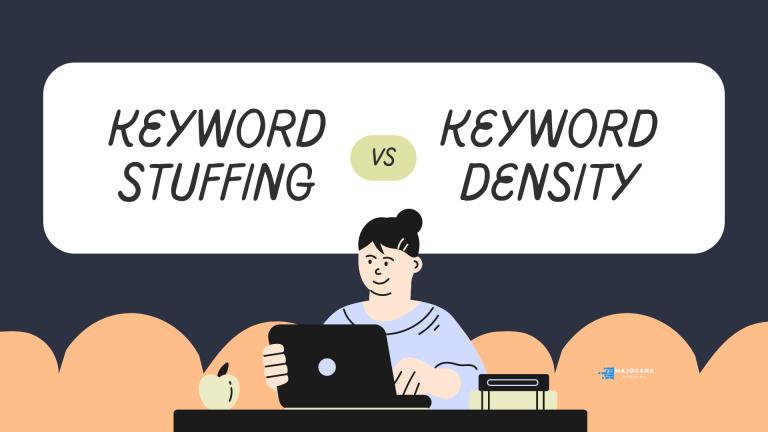Introduction:
In the realm of digital marketing and search engine optimization (SEO), the practice of “article spinning” has been a controversial topic. Article spinning involves rewording or rephrasing existing content to create supposedly unique articles. The question arises: Is Google Against Spinning Article?
In this article, we delve into this topic, exploring whether Google frowns upon this practice, the reasons behind its stance, and offer better alternatives to achieve higher search engine rankings while maintaining ethical standards.
How does Article Spinner Tool works?

An article spinner tool is a software application that is designed to take an original article and automatically generate multiple versions of that article by replacing certain words, phrases, and sentences with synonyms or alternative language constructs. The purpose of an article spinner tool is often to create unique content that can be used for various purposes, such as avoiding duplicate content penalties in search engine optimization (SEO) efforts or generating a large volume of content quickly.
Here’s how an article spinner tool typically works:
- Input Text: You start by providing the tool with an original article or piece of content that you want to spin.
- Text Analysis: The tool analyzes the input text, identifying words, phrases, and sentences that can potentially be replaced or rephrased.
- Synonym Replacement: The tool then accesses its database of synonyms, which is a collection of words that have similar meanings to the words in the original text. It replaces certain words and phrases in the input text with their synonyms.
- Sentence Restructuring: In addition to synonym replacement, some article spinner tools also attempt to restructure sentences or paragraphs to create a more unique version of the content.
- Randomization: Some advanced tools might introduce randomness by selecting synonyms randomly or altering sentence structures in unpredictable ways, further increasing the uniqueness of the spun content.
- Output Generation: The tool generates multiple spun versions of the original article based on the replacements and rephrasings it has made.
- Content Variation: The spun articles are intended to be sufficiently different from the original to avoid detection by plagiarism-checking algorithms and search engines. However, the quality of the spun content can vary widely, and often the resulting articles may not make much sense or could sound awkward due to the automated nature of the process.
Note: It’s important to note that while article spinner tools might seem like a convenient way to generate content quickly, they often produce low-quality content that is difficult to read and understand. Search engines are becoming more sophisticated in detecting spun content and duplicate text, so relying solely on spun content for SEO purposes is not recommended.
Is Google Against Spinning Article?

Yes. It’s essential to understand Google’s core mission: to provide users with relevant and valuable information.
Article spinning goes against this mission for several reasons:
Duplicate Content Penalty:
Google’s algorithm detects duplicate content and may penalize websites that engage in article spinning by ranking them lower or excluding them from search results.
Low-Quality Content:
Article spinning often produces low-quality content that lacks coherence and value. Google aims to reward high-quality, informative content that genuinely benefits users.
User Experience:
Users expect to find useful and engaging content when they search on Google. Article spinning can lead to irrelevant or nonsensical content, frustrating users and leading them away from the search engine.
Deception:
Article spinning can deceive users into believing they’re accessing unique information when, in reality, they encounter regurgitated content. Google aims to ensure the integrity of search results.
A Better Approach to Rank on Google: Quality Content and Ethical SEO

Rather than resorting to article spinning, webmasters and content creators can employ ethical and effective strategies to rank higher on Google’s search results:
Original and Valuable Content:
Focus on producing high-quality, original content that addresses users’ needs, interests, and queries. Unique insights, comprehensive information, and engaging writing will naturally attract visitors.
Keyword Research:
Conduct thorough keyword research to identify relevant keywords and phrases that your target audience is searching for. Incorporate these naturally into your content to improve its visibility.
Structured and Readable Content:
Organize your content with proper headings, subheadings, and paragraphs. Use bullet points, numbered lists, and images to enhance readability and user experience.
Backlinks from Reputable Sources:
Acquire backlinks from authoritative and relevant websites. High-quality backlinks indicate to Google that your content is trustworthy and valuable.
Mobile-Friendly and Fast Website:
Ensure your website is responsive and loads quickly on both desktop and mobile devices. Google considers mobile-friendliness and loading speed as ranking factors.
Final Thought
In conclusion, the answer to the question “Is Google Against Spinning Article?” is a resounding yes. Google’s primary goal is to provide users with valuable, relevant, and original content. Article spinning contradicts this goal by generating low-quality, duplicated, and often meaningless content.
To achieve better rankings on Google while adhering to ethical practices, focus on creating original, high-quality content that addresses user needs. Perform thorough keyword research, structure your content for readability, earn backlinks from authoritative sources, and ensure your website is user-friendly. source
By following these guidelines, you can improve your SEO efforts and enhance your chances of ranking higher in Google’s search results, all while contributing positively to the online ecosystem.







